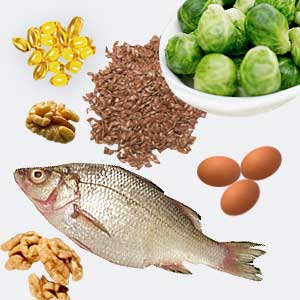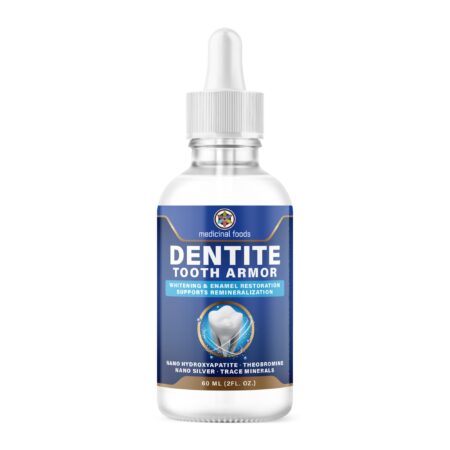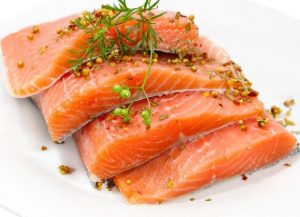 Humans have been consuming the bounty of the ocean since we first developed techniques to catch it. Our distant ancestors were aware of this healthy bounty.
Humans have been consuming the bounty of the ocean since we first developed techniques to catch it. Our distant ancestors were aware of this healthy bounty.
Ancient Vikings revered Fermented Cod Liver Oil and Roman soldiers were fed their daily ration. Cultures of the past definitely knew their harvest from the ocean was tasty- but it turns out there are a lot of other reasons why consuming fish and other seafood is such a good idea.
Fish is great for your heart. According to the American Heart Association, abundant evidence shows that eating fish can reduce the possibility of developing cardiovascular disease, and especially heart attacks.
It’s a result of unsaturated fats, called omega-3 fatty acids, which are thought to protect blood vessels in your body by reducing inflammation. They can also reduce blood fat (triglycerides), blood pressure, and blood clotting, all of which lowers the risk of stroke and heart failure.
Fish can diminish symptoms of mental illness. Omega-3 fatty acids have also proven effective in combatting depression and bipolar disorder.
According to a study conducted in the late 90s, people with depression have low omega-3 levels in their red blood cell membranes – another study had participants taking 10 grams of fish oil daily for four months, and at the end 64% of the participants said there was an improvement. (It’s advised to start with a lower dose, however.)
Omega-3 fatty acids achieve this by increasing levels of serotonin, a neurotransmitter which regulates mood, sleep and appetite.
Fish facilitates healthy development in babies. Pregnant mothers that eat fish may help their unborn children develop strong eyes, brains, and nervous and immune systems, and babies and toddlers that take fish oil supplements can continue this developmental aid.
“But wait, ” you might ask – “what about contaminants like mercury?”
There are a few things you need to know.
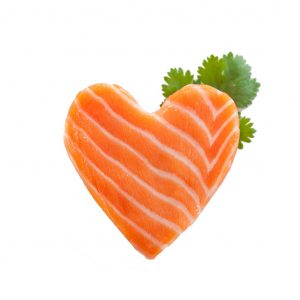 First, not all fish have high levels of mercury. It’s mostly bigger, older, predatory fish and marine mammals that have the highest levels – so it’s advised that you avoid eating shark, swordfish, tilefish or king Mackerel.
First, not all fish have high levels of mercury. It’s mostly bigger, older, predatory fish and marine mammals that have the highest levels – so it’s advised that you avoid eating shark, swordfish, tilefish or king Mackerel.
Second, in fish with very low levels of mercury, the health benefits to be gained vastly outweigh the potential risks stemming from mercury and other contaminants.
Harvard University explains that, in an analysis conducted by Drs. Mozaffarian and Rimm for the Journal of the American Medical Association, “If 100, 000 people ate farmed salmon twice a week for 70 years, the extra [contaminant] intake could potentially cause 24 extra deaths from cancer – but would prevent at least 7, 000 deaths from heart disease.”
The low levels of contaminants like mercury, PCBs and dioxins in a variety of fish are equal to those found in meat, dairy and even vegetables, so it’s actually not putting you any more at risk.
The key is to know what fish to consume, and how much to consume. The American Heart Association says you should aim to eat fish twice a week, especially fatty fish that harbor healthy unsaturated fats, such as salmon and canned tuna. And of course, it’s important to avoid frying and deep-frying fish, especially coating it in batter or using a lot of cream with it.
You can find plenty of healthy, delicious ways to eat your fish without all that unhealthy excess!
Equally important: know where your fish has been. There has been a lot of talk about wild caught fish versus those raised in farms, and it’s an important discussion to have. The consensus seems to be that wild caught is the healthier alternative of the two, and as CNNHealth nutritionist Dr. Melina Jampolis has said, you should “limit farmed salmon consumption to once a week at most if you are unable to find fresh, wild salmon.”
The Environmental Working Group composed a report in 2003 which explained that U.S. farmed salmon is the most contaminated fish with certain human-made chemicals, called PCBs. In 2004, further studies showed that farmed Atlantic salmon’s levels of PCBs and other toxins were higher than those of their wild Pacific counterparts.
Since farmed fish are fed smaller fish, like sardines, if these smaller fish are already contaminated then the farmed fish acquire that contamination, and the situation just gets worse over time.
However, more recent research highlights the fact that the benefits of both wild caught and farmed fish outweigh the risks.
Eric Rimm, associate professor of epidemiology and nutrition at the Harvard School of Public Health, said “it’s clear that if there’s any risk, the benefit is still in the range of 300 to 1, 000 times greater from the fact that you’re getting omega-3s.”
This information shows us that it’s important to know where the fish you purchase comes from. There are farms that are careful not to contaminate their livestock, but in this case it seems that the wild fish raised by Mother Nature are likely the best choice!
The fatty fish will provide you with fat-soluble vitamins, which are essential for maintaining good health. Fatty fish are high in vitamin A, an antioxidant that can strengthen your immune system, and vitamin D, which helps the body absorb calcium and phosphorus from food in order to strengthen bones and teeth.
Your bones and teeth especially need vitamin D to stay strong and function effectively. Your teeth need it in order to produce more enamel and repair cavities, so eating fatty fish is crucial. For more information on strengthening your teeth, our “Cavity Healing Protocol” may help strengthen and regrow tooth enamel.
Aside from eating fatty fish regularly, if you really want to reap the benefits that they can provide, you may want to consider taking a cod liver oil supplement. Cod liver oil is very high in vitamins A and D, while regular fish oil is not, and by taking a supplement you can get the best quality nutrients cod liver oil can offer.
The problem is that most cod liver oil supplements don’t undergo the kinds of fermentation processes that yield the best possible results. By undergoing a slow, cold fermentation, the oil is removed from the cod liver slowly and completely, and that means you get as much of cod liver oil’s healing properties as you can.
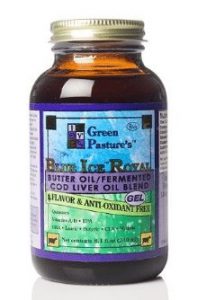
Medicinal Foods is proud to offer the Fermented Cod Liver Oil potion, by Green Pastures. This is a highly potent extract you can add to pretty much anything you eat or drink, it has a delectable cinnamon flavor, and it’s far more effective than your average cod liver oil supplement. This is a remedy that has high vitamin A and D content and can prevent dry eyes, improve cognitive function, and even get rid of acne and wrinkles!
These aren’t benefits you can do without – as we’ve seen, consuming fatty fish regularly is a crucial aspect of a healthy diet, and this extract brings you the essence of this natural source of healing so you can get the nutrients you really need.
You can grab a bottle of our Fermented Cod Liver Oil right now, in our online store. It’s guaranteed to make you healthier and happier – and we all want that!
So what are you waiting for? Come on by and improve your quality of life now!
Sources
http://www.heart.org/HEARTORG/GettingHealthy/NutritionCenter/HealthyEating/Eating-Fish-for-Heart-Health_UCM_440433_Article.jsp
http://www.mayoclinic.org/diseases-conditions/heart-disease/in-depth/omega-3/art-20045614
http://www.webmd.com/depression/features/fish-oil-to-treat-depression
http://americanpregnancy.org/first-year-of-life/omega-3-supplements-baby/
http://www.heart.org/HEARTORG/GettingHealthy/NutritionCenter/HealthyEating/Fish-and-Omega-3-Fatty-Acids_UCM_303248_Article.jsp
http://www.hsph.harvard.edu/nutritionsource/fish/
http://www.cnn.com/2010/HEALTH/01/13/salmon.farmed.fresh/
http://www.heart.org/HEARTORG/GettingHealthy/NutritionCenter/HealthyEating/Fish-and-Omega-3-Fatty-Acids_UCM_303248_Article.jsp
https://medicinal-foods.com/new-fermented-cod-liver-oil-and-high-vitamin-butter-oil-blend
You may also enjoy reading:


